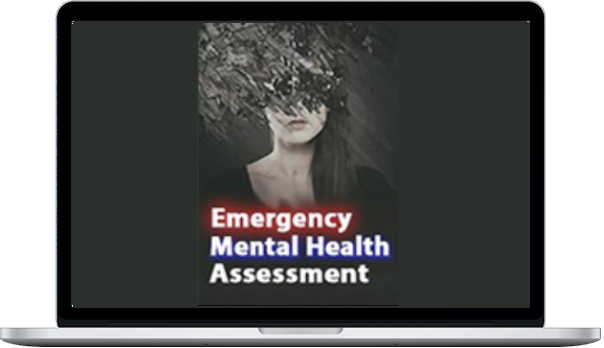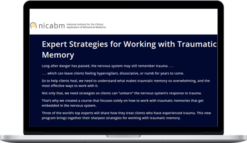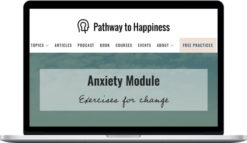Tim Webb – Emergency Mental Health: Assessment And Treatment
$219.00 $22.00
»Delivery: Within 24hs
Description
Tim Webb – Emergency Mental Health: Assessment And Treatment
Description Of Emergency Mental Health: Assessment And Treatment
Mental health emergencies occur daily. They present themselves in emergency rooms nationwide. They present themselves in schools, primary care offices, jails, the workplace, churches, and most anywhere. The majority of people who commit suicide see their primary care physician during the month prior to their death; however, the symptoms of the suicidal patient are often overlooked. Many have spoken with pastors, counselors, or others about their despair.
Learning to assess and appropriately intervene can often prevent the patient from attempting suicide. School counselors, managers, and others often encounter the chemically dependent or violent individual. Law enforcement personnel often encounter persons with bizarre behavior and those under the influence of drugs and alcohol. Learning to recognize the symptoms of mental health emergencies and how to address them is often vital to the safety of the individual and others.
In this practical and timly recording, learn how to quickly assess and triage mental health emergencies. Information will be provided on performing suicide and homicide risk assessments, mental status examinations, and evaluation of the need for detoxification. Mr. Webb will discuss recognizing likely diagnoses based on knowledge of the patient’s psychotropic medications. Other topics will include the practitioner’s liability regarding emergency mental health, including the practitioner’s duty to warn and protect per the Tarasoff court case. The value of “contracts for safety” will also be discussed. Involuntary commitment, inpatient, and outpatient treatment criteria will be discussed in relation to both your state’s statutes and third party payment.
What You’ll Learn In Emergency Mental Health: Assessment And Treatment
Objectives
- Describe clinical strategies to assess and triage mental health emergencies
- Assess and intervene with suicidal, psychotic, and dangerous patients and clients in any setting
- Assess and intervene with clinical strategies when presented with patients and clients experiencing symptoms of substance withdrawal
- Understand when and how to involuntarily commit patients and clients
- Articulated ethical, legal, and liability issues, including duty to warn and your responsibilities as a clinician regarding EMTALA
- Discuss which instruments to use to assess for suicide, violence, sexual aggression, and substance withdrawal and how this informs the clincian’s choice of treatment intervention
- Determine when to hospitalize patients and clients, and how to justify the appropriate level of care to insurers
- Develop effective safety plans and crisis interventions for suicidal and psychotic patients and clients
- Assess withdrawing patients, including use of the CAGE and CIWA in clinical treatment
- Recognize which psychotropic medications are often associated with which psychiatric diagnoses
- Examine legal and ethical implications of emergency mental health assessment and treatment
Outline
SUICIDE RISK ASSESSMENT AND INTERVENTION
- Identify those patients most at risk
- Unique differences in adolescent and geriatric suicides
- Two questions the patient must answer
- The two types of suicidal patients
- Interview strategies and techniques
- Which instruments to use for assessment
- Develop clinically sound safety plans
- When and how to manage the patient as an outpatient
- When to hospitalize the patient
- When and how to involuntarily commit the patient
- The role of managed care and third party payers
HOMICIDE AND VIOLENCE RISK ASSSESSMENT AND INTERVENTION
- Keeping yourself and others safe with the violent patient
- Identify those patients most at risk
- Differences in interviewing the violent and suicidal patient
- Interview strategies and techniques for the violent patient
- The two types of violence
- Which instruments to use for assessment
- Unique risk factors for school violence
- Assessing the risk for workplace violence
- When to hospitalize the patient
- When and how to involuntarily commit the patient
- The role of managed care and third party payers
MENTAL STATUS EXAMINATIONS
- Elements of a mental status examination
- Understand and identify psychotic symptoms
- The role of medical conditions and substance use in the examination and disposition
- Backtracking a diagnosis based on the patient’s medication list
- Which medications are used for specific disorders
- The role of “medical clearance,” laboratory studies, and medical conditions affecting disposition
- Managing malingerers
HOW TO ASSESS THE CHEMICALLY DEPENDENT PATIENT
- Which substances require detoxification
- Medical vs. traditional vs. social vs. outpatient detox
- Using the CAGE to assess for alcoholism
- Using the CIWA to assess alcohol withdrawal
- Medications and vitamins vital to safe detoxification
- Assessing the withdrawing patient
- Making a level of care recommendation for the substance-abusing patient
- Integrate laboratory studies and medical histories into the assessment
- The role of managed care and third party payers
APPRECIATE THE ETHICAL, LEGAL AND LIABILITY IMPLICATIONS OF MENTAL HEALTH EMERGENCIES
- Ethical responsibilities
- Appreciate the results of the Tarasoff court case, especially the duty to warn and protect
- Understand when and how EMTALA applies
- Learn whether to “contract for safety”
- Understand reporting abuse and neglect
About Tim Webb
Tim Webb, M.A. Ed., LPC, is the founder and CEO of The FOCUS Group, PLLC, a Clemmons, North Carolina based clinical training and consultation agency specializing in developing comprehensive programs for mental health crisis management. FOCUS Group helps systems ensure clinician safety, improve treatment of trauma and sexual aggression, performance enhancement and manage facility growth.
His professional experiences include intake director and managing crisis services in the community, clinics and emergency rooms. As a clinical director, he has been responsible for program development, hiring/supervising clinicians and direct care staff, and all clinical operations for residential facilities. His unique combination of clinical and management experiences allow him to understand both the needs of administrative and front-line staff as he speaks to professionals in various settings.
In addition to holding Masters in Counseling from Wake Forest, Mr. Webb is a 2nd degree black belt in Mu Duk Kwan and an instructor in that martial art. He has provided clinical services in a number of jail settings and also has a background in firefighting. Mr. Webb’s unique combination of martial arts, teaching, emergency services and clinical experience have allowed him to develop the Stay Safe system of managing physically aggressive clients in a non-violent but safe and effective system.
Speaker Disclosures:
Speaker Disclosures: Financial: Tim Webb is the Founder/CEO and author for The FOCUS Group, PLLC. He has an employment relationship with Daymark Recovery Services. He receives a speaking honorarium from PESI, Inc. Tim has no relevant financial relationships with ineligible organizations.
Non-financial: Tim Webb has no relevant non-financial relationship to disclose.
More courses from the same author: Tim Webb
Delivery Policy
When will I receive my course?
You will receive a link to download your course immediately or within 1 to 21 days. It depends on the product you buy, so please read the short description of the product carefully before making a purchase.
How is my course delivered?
We share courses through Google Drive, so once your order is complete, you'll receive an invitation to view the course in your email.
To avoid any delay in delivery, please provide a Google mail and enter your email address correctly in the Checkout Page.
In case you submit a wrong email address, please contact us to resend the course to the correct email.
How do I check status of my order?
Please log in to HealingCourse account then go to Order Page. You will find all your orders includes number, date, status and total price.
If the status is Processing: Your course is being uploaded. Please be patient and wait for us to complete your order. If your order has multiple courses and one of them has not been updated with the download link, the status of the order is also Processing.
If the status is Completed: Your course is ready for immediate download. Click "VIEW" to view details and download the course.
Where can I find my course?
Once your order is complete, a link to download the course will automatically be sent to your email.
You can also get the download link by logging into your HealingCourse account then going to Downloads Page.
Related products
Total sold: 3
Total sold: 3











